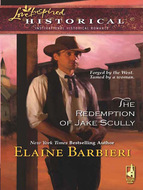Kitap dosya olarak indirilemez ancak uygulamamız üzerinden veya online olarak web sitemizden okunabilir.
Kitabı oku: «The Duke's Gamble», sayfa 2
Chapter Two
“F orgive me, Miss Penny, but are you certain you’ll be well enough on your own here tonight?” Pratt, the manager of Penny House, lingered still in the doorway to her private rooms. Below his old-fashioned wig, his narrow face was lined with worry as he watched Amariah light the candlesticks on her desk. “I can ask one of the maids to come sit up with you if you wish.”
As tired as she was, Amariah still smiled. “Thank you, Pratt, but I’ll be fine here by myself.”
He pursed his lips. “But, Miss Penny, if—”
“I told you, Pratt, I’ll be fine.” Amariah blew out the rush she’d used to light the candlesticks. “I need you far more as the club manager than as my personal broody hen.”
“Very well, miss.” Pratt sighed with resignation and bowed, a fine dust of white powder from his wig wafting forward. “Good night, miss.”
“Good night to you, too, Pratt,” she said softly. She really was fond of him, broody hen or not, and she certainly couldn’t have made Penny House the success it was without his experience and constant guidance. “And thank you again for all your extra work today with Miss Bethany’s wedding. Or rather, with Lady Callaway’s wedding. Oh, how long it’s going to take me to remember that!”
She laughed ruefully. It would be difficult for her to remember the change in her middle sister’s name and in her rank, too, just as she still occasionally forgot to call her youngest sister Mrs. Blackley instead of simply Miss Cassia, and she’d been wed to Richard for months. But in Amariah’s mind, they’d both always be just her two little sisters Bethany and Cassia, turning to her the way they had ever since their mother had died nearly twenty years before.
“You’ll remember, miss,” Pratt said, and bowed again. “Good night, miss.”
He closed the door softly, and for the first time in this long, long day, Amariah was alone. Finally she let the weariness roll over her, and with an extravagant yawn she dropped into the chair behind the desk, pulling the coverlet she kept there up over her shoulders as a makeshift shawl. She kicked off her slippers and tugged the white plume from her hair and the hairpins with it, rubbing her fingers across her scalp as her now-loose hair slipped and fell down her back. She pulled the chair closer to the desk, poured herself a fresh cup of tea from the pot that Pratt had left her, and with a sigh she turned to the pile of unopened letters and cards and bills that needed replies. Though the club had been closed yesterday and today for Bethany’s wedding, the work involved with running Penny House never seemed to pause.
Quickly she sorted through the stack of papers, dividing them into categories of importance. While handling her father’s correspondence for the parish and the rectory was hardly on the same scale as Penny House, it had prepared her for trade and bookkeeping in ways that most young women of her station weren’t. This was the special ability she’d brought to Penny House, balancing costs against expenses and remaining firm with tradesmen, just as Bethany’s gift with cookery had made the club’s suppers famous, and Cassia’s knack for finding treasures in secondhand shops had turned the huge sow’s ear that Penny House had been when they’d inherited it into the most fashionably appointed gaming house in London. The best part of all was knowing how much money they raised every night for charity, exactly as Father had intended. Running Penny House made Amariah feel like that ancient old rascal Robin Hood, taking from the rich to give to the poor.
Amariah smiled as she dipped her pen into the ink, remembering how the three sisters from the country had proved the doubters so completely wrong. But now marriage had reduced the three Pennys to one, and the never-ending work of running the club would be in her hands alone. There would be even more late nights and early mornings like this one for her, and resolutely she cracked the seal on the next letter, determined to make more headway before she went to bed.
But the harder she tried to concentrate on the sheet before her, the more the figures seemed to swim before her eyes, and the more, too, that her thoughts seemed determined to wander off onto the most unproductive path imaginable.
A path that led directly to the too-charming smile of His Grace the Duke of Guilford.
She put down her pen and groaned, rubbing her eyes with her hands. The duke was certainly not the first gentleman in the club to press his familiarity with her or her sisters, nor would he likely be the last, not with a membership made entirely of men from birth accustomed—and expecting—to have their own way.
Guilford, however, had taken her by surprise. Oh, he was worldly and witty enough for this kind of foolish, flirtatious game; there was no doubt of that. But until now he’d always been careful to keep most of his considerable charm reined in where she was concerned. He’d tease her, compliment her, tell her jests and banter with her, but that was all. No wonder he’d become one of her favorite gentlemen. He’d respected her and her role at Penny House. He’d understood why she must keep herself more pure and honorable than Caesar’s wife for the sake of the club’s viability, and why it would be so disastrous if she didn’t. On one occasion, he’d even come to Cassia’s defense when another guest had cornered her and made untoward overtures.
Now everything had changed. Of course, she’d try to give the duke the benefit of the doubt, and pretend the brandy had been speaking instead of him; but she could recognize a man half-gone with drink, and he hadn’t been like that. He’d behaved as he did simply because he’d wanted to, because he’d thought he would succeed, and she’d never be able to feel at ease with him again.
With a grumble of frustration she shoved her chair back from the desk and padded across to the window in her stocking feet, drawing the coverlet around her arms like folded wings. She pushed aside the damask curtain and gazed out over the club’s tiny enclosed backyard and across the slate roofs and chimneys of London. Though the stars still shone here and there in the sky, the horizon was beginning to pale with the coming dawn. All across the city, there would be hundreds of people whose workdays had already begun—bakers, milkmaids, fishmongers, stable boys, scullery maids—yet, as Amariah stared out over those rooftops, she felt as if she were the only one awake in the entire city.
You can’t do everything by yourself, Miss Penny….
Why had he waited in the dark like that for her, turning the back parlor into his own seductively cozy lair? How had he known exactly the way to ruffle her usual composure, teasing her with that nonsense about being a virago? He’d smiled down at her, his single dimple punctuating his face and his dark hair falling carelessly over his forehead; his deep, lazy voice made for sharing secrets and wooing women into madness.
Was that why she’d almost weakened when he’d taken her hand, almost forgotten everything she worked so hard for every day and night, almost traded it all away for what the Duke of Guilford could offer by the half-light of a dying fire?
She rested her spread fingers on the windowpane, the glass cool beneath her palm, and bowed her head. She was so tired that even her bones seemed to ache. Surely that must be what was making her think like this, casting empty wishes to the morning star for a gentleman she’d never have: weariness, and nothing more.
No matter how much you wish it, you can’t do everything by yourself….
“That’s the one,” said Guilford, tapping his knuckles on the jeweler’s counter for emphasis. “That will do the trick.”
“Ah, your grace, you do know what will please a lady.” Mr. Robitaille nodded, and ran his hand lightly over the surface of the bracelet’s rubies. As one of the most popular—and costly—jewelers here on Bond Street, old Robitaille himself knew a thing or two about pleasing a lady. The bracelet was a pretty trinket: rubies set like tiny red flowers, centered with pearls, and exactly what was needed to earn his place in the eyes of Miss Amariah Penny. In his experience, jewels never, ever failed.
“What pleases a lady is anything in this shop, Robitaille,” he said cheerfully, “which you know as well as I do. But what lady doesn’t like rubies, eh?”
Robitaille chuckled. “As you say, your grace, as you say. Shall I have it sent to Miss Danton, as usual?”
“I fear not.” Guilford frowned, trying to look serious as he heaved a sigh as deep as the ocean. “It’s a terrible tale, Robitaille. Charlotte Danton has thrown me over for the master of the Derby Hunt.”
“No, your grace!” Shocked, the jeweler drew back, the bracelet clutched in his hand. “I cannot believe the lady would abandon you!”
“Oh, it’s true,” Guilford said with another sigh. The real truth was that he’d tired of Charlotte at precisely the same time that she’d wearied of him, but because she’d been the one who’d abandoned their sinking ship first, he considered himself free of any further obligations, either of the heart or the pocket. No wonder he’d jumped at that wager involving Amariah Penny as a new diversion.
“I am most sorry for your pain and your loss, your grace.” Robitaille bowed his head in sympathy, as dutifully full of respect as any mourner hired for a burial. Almost as an afterthought, he looked down at the bracelet still in his hands. “Might I ask where the bracelet should be sent, your grace?”
“To Penny House, St. James.” Guilford smiled, glad to be done with the sighing and moaning over Charlotte. “To Miss Amariah Penny.”
“Miss Penny, your grace?” Robitaille’s mouth formed a perfect oval of surprise. “Miss Amariah Penny of Penny House? Oh, your grace, you amaze me!”
His wonder was so complete that Guilford laughed. “Do you think she’s unworthy of me, Robitaille, or that I am unworthy of her?”
“Neither, your grace, of course not,” the jeweler said quickly, “but Miss Penny is…a different sort of lady, isn’t she?”
“She’s some old parson’s daughter, she has hair as red as flame, and she’s clever enough to earn her own keep,” Guilford said, smiling as he recalled how upset she’d been with him last night. “I suppose that does make her a change from my usual fare.”
The jeweler laid the bracelet back down upon the silk-covered pillow on the counter, straightening the links with the tip of one finger into a neat line.
“She won’t take the bracelet, your grace,” he said definitively. “Not Miss Penny, nor her sisters, either. They won’t accept gifts from this shop from any of my gentlemen. They claim their position won’t permit it.”
“Hah, that’s nonsense, Robitaille,” scoffed Guilford. “I’ve seen how she decks herself out every night at the club, sparkling like a queen. She didn’t get diamonds and sapphires like those from her papa in the vicarage.”
Robitaille sniffed with disdain. “They’re all paste, your grace. I’ve seen her myself, from afar. Good paste, from Paris, but paste nonetheless.”
Guilford frowned a bit, unable to accept this. To him, genuine or paste looked much the same, but he did believe in the value of quality, and in paying for it, too. “Why the devil would she wear paste, when she could have the real thing?”
“Charity, your grace,” said Robitaille with a fatalist’s resignation. “She wants nothing for herself, nor did her sisters. I cannot tell you how many pieces have been sent to the ladies of Penny House, your grace, and exactly the same number have been returned.”
“But they haven’t been sent by me,” Guilford said, his confidence unshaken. “Miss Penny and I have always gotten on famously. You’ll see. This bracelet won’t come back.”
But the jeweler’s doleful face showed no such conviction. “As you say, your grace,” he said with the most obsequious of bows. “Thank you for your custom, your grace. I’ll have it taken to the lady directly.”
“Good.” And as Guilford turned away from the counter, he realized his pride had just made another, unspoken wager with Robitaille: that his bracelet would be the first accepted and displayed upon the lovely pale wrist of Amariah Penny.
It was the muted rattle of the dishes on the breakfast tray that first woke Amariah, followed by her maid Deborah’s tentative whisper.
“Good morning, Miss Penny,” Deborah said as she set the tray down on the table at the end of the bed. “Miss Penny? Are you awake, Miss Penny?”
Amariah rolled over in bed, shoving her hair from her eyes as she squinted at the face of the little brass clock on the table beside her head. She felt as if she’d only just fallen into bed, her head so thick and her eyes as scratchy as if she hadn’t slept at all. Surely Deborah had come too soon; surely it couldn’t be time to wake already.
“What time is it?” she asked, her voice scratchy and squeaky with sleep.
“Half past noon, miss,” the maid answered apologetically. “I know you must still be dreadful weary after the wedding and all, but Mr. Pratt said you’d have his head if he let you sleep any later.”
“Pratt’s right.” Groggy, Amariah kept her face still pressed into her pillow for another second more. It was time she woke; she usually rose at eleven, and now she’d lost that hour and a half of usefulness forever, never to be recaptured. “I would have his head.”
Somehow she found the will to push herself upright just as Deborah drew back the curtains to the window, letting the bright noonday sun flood the room, and with a groan Amariah flopped back onto the pillow, her arm flung over her eyes.
“Forgive me, miss, but Mr. Pratt said it’s the only way to—”
“I know what Mr. Pratt said,” said Amariah, marshaling herself for another attempt, “though knowing he is right doesn’t make it any more agreeable.”
“Forgive me for being forward, miss, but everything will be more agreeable after a nice dish of tea.” Deborah lifted the small silver pot and poured the steaming tea into one of the little porcelain cups, adding sugar and lemon. Then she tipped the fragrant liquid into the deep-bottomed dish and handed it to Amariah. “Your favorite pekoe, miss.”
“Thank you, Deborah.” Carefully Amariah took the saucer, her fingers balancing the worn, gold-rimmed edge. Painted with purple irises, the tea set was one of the few things the sisters had had from their mother, and for Amariah, using the delicate porcelain each morning was a small, comforting way to remind herself of her long-past childhood in Sussex.
Deborah shifted the tray to the bed, reaching behind Amariah to plump her pillows higher. “You see, miss, that Mrs. Todd cooked your eggs just the way that Miss Bethany—I mean, Lady Callaway—did for you, with them little grilled onions on the side.”
“Shallots,” Amariah said wistfully as she looked down at her plate. “They’re a special breed of onions called shallots.”
Deborah beamed. “See now, miss, isn’t that just like Mrs. Todd, knowing the difference, and knowing you’d know, too?”
Amariah smiled in return, but without any joy. Mrs. Todd, Bethany’s assistant in the kitchen and a master cook in her own right, had made an exact copy of one of her sister’s best breakfasts, but it wasn’t the same. It never could be, not without Cassia and Bethany to share it. Breakfast had always been the one meal the sisters had together, sitting in their nightclothes before the fire to laugh and gossip and plan their day before their work began in earnest.
Now Bethany and Cassia must be taking breakfast with their husbands, pouring their tea and buttering their toast, while she would be here at Penny House, with only—
“Miss Penny, miss?” The scullery maid standing before her was very young and very new, her hands twisting knots in her skirts and her face so pinched with anxiety that Amariah feared she might cry. “Miss?”
“What are you doing here, Sally?” Deborah scolded. “You’ve no business coming upstairs and bothering Miss Penny! Go, away with you, back where you belong!”
The girl’s eyes instantly filled with terrified tears. “But Mr. Pratt said—”
“What did Mr. Pratt say, lass?” Amariah asked gently, preferring to earn her staff’s loyalty through kindness, not threats. “Is something wrong?”
“No, Miss Penny. That is, it be this, Miss Penny.” Sally made a stiff-legged curtsy before she darted forward, a folded letter in her hand. “I was sweepin’ th’ front steps, Miss Penny, an’ found this there, up against th’ door, an’ Mr. Pratt said I must bring it to you at once.”
“Thank you for your promptness. You did exactly the right thing.” Amariah took the letter from the girl, her heart making a small, irrational flutter of hope.
Why would Guilford leave her a letter by the door, instead of handing it to a servant? Why, really, would he write to her at all?
“You’re new, aren’t you?” she said. “What is your name?”
“Yes, miss,” she said with another curtsy. “I’m Sally, miss.”
“Then thank you, Sally,” Amariah said, forcing herself to pause, and keep her curiosity about the letter at bay. “Continue to be so obedient, and you’re sure to prosper here. You may go.”
“Yes, Miss Penny.” The girl fled with obvious relief, leaving Amariah alone with the letter in her hands. Though the stock was thick and creamy, the highest quality made for the wealthiest custom, there was no watermark or seal to reveal the sender. That alone was proof enough that it hadn’t come from the duke, and enough to silence her foolish expectations; Guilford loved his title far too much ever to be anonymous by choice.
Still, the letter itself remained a puzzle. Only her name was printed across the front, in large, blockish letters written with an intentional crudeness to disguise the writer’s true hand.
“That’s a curious sort o’ thing, isn’t it, miss?” Deborah asked, purposefully lingering near the bed to watch. “Should I fetch one o’ the footmen before you open it, miss, just to be safe?”
“Whatever for, Deborah?” Amariah scoffed. “In case some sort of villainy should puff fright from the paper? I’ll grant that the writer must be a strange sort of coward to toil so hard at hiding his face and name, but I’m hardly afraid of his letter.”
With a flourish, Amariah slipped her finger beneath the blob of candle wax that served as the letter’s seal and cracked it open.
Mistress Penny,
Be Advised that you have a Great Cheat at your Hazard Table & that I will Unmask him to Public Shame & Disgrace if you do not Do so First.
A Friend of Truth & Honor
“I hope it’s not bad news, Miss Penny,” Deborah said as she began laying out Amariah’s clothes for the day.
“Not bad,” Amariah said, briskly refolding the letter. The message had been written in the elegant hand of a gentleman and a coward, and she intended to discover his identity as soon as possible. “Merely provoking. Please tell Mr. Pratt to send for Mr. Walthrip directly, as well as all the footmen and guards who have served in the hazard room within the last fortnight. I should like to address them all as soon as they have arrived. I will not have a gaming scandal at Penny House, especially not based on the whispers of some knave too timid to show his face.”
Two hours later, Amariah stood at the head of the large oval table, made of the most solid mahogany, normally used for the playing of hazard. While the tall windows were thrown open as they were each day to freshen the stale air left from the night before, the room never could quite shake its nocturnal cast, like some dandy caught after dawn in the harsh glare of morning. One by one, Amariah glanced at each of the faces gathered around the green-covered table: some old and wizened, some fresh and young, some she’d inherited along with the club itself, and all still dazed and rumpled from being called into work so early.
“I’m sorry to have roused you from your beds,” she began, “but my reason is a serious one. I received a letter this morning accusing us of harboring a cheat at our hazard table.”
“But Miss Penny, that is not possible!” Mr. Walthrip cried, his bony jaw jutting out with indignation over his tightly wrapped stock. He was the hazard table’s director and had been for at least twenty-five years, and he took his job so solemnly that Amariah was not surprised he was the first to object. “There is a precision, a nicety, to hazard that does not favor cheating!”
“Are you saying it’s impossible to cheat at hazard?” Amariah asked. “Or that it’s impossible to cheat at hazard at Penny House?”
Walthrip sniffed. “There is not a single game devised by man that another man has not found a way to fox,” he said, as stern as any judge. “But it would be difficult to cheat at hazard here at Penny House, miss, very difficult indeed.”
“That is true, Miss Penny,” Pratt said, nodding in agreement with the manager. “As you know, we have our dice made to our own specifications, as are our throwing-boxes, and no gentleman is ever permitted to introduce his own dice or box into the play.”
“Yes, yes,” Walthrip said, opening and closing his hands as if testing the dice even now. “The dice and the boxes are changed without warning throughout the night, especially if luck is favoring one gentleman more than others. We are open about everything, miss, as stated in the house laws. Nothing is ever done in secret or behind the hand.”
Amariah leaned forward and ran her palm lightly across the green woolen cloth, marked with yellow lines, that covered the table. The room with the hazard table was the most popular in the club, and night after night, the game generated the most income. “Is there any way the table could be altered in some fashion to control the fall of the dice?”
“No, miss,” said Talbot, the most senior of the footmen. “Each afternoon the cloth is swept and secured fresh, and Mr. Walthrip tests it himself. There’s no bumps or lumps to favor anyone.”
“I would ask you to consider the very nature of the game, too, Miss Penny,” Walthrip said, leaning forward. “While one man throws, there are any number of others who lay their wagers on his effort. They are watching him like so many cats around a mouse, and if he were to attempt anything out of the ordinary—anything at all, miss—why, they would tear him apart for his trouble.”
“Then none of you have seen anything to catch your eye this last week or so?” Amariah asked. Once again she glanced around the room, and was gratified to see that none of the men looked uncomfortable with her question as they shook their heads in unison. “Nothing strange, or peculiar in any way?”
“Nothing,” Walthrip said with relish, also pleased by the emphatic response of those around him. “It’s the nicety of the game, miss, the veriest nicety.”
Amariah listened, and nodded. Because she herself knew little of the games that supported the club, she had to depend on the experience and wisdom of those in her hire to advise her. Everything Walthrip and the others had said made perfect sense to her, for which she was glad and grateful, too. Still, she could not put aside her uneasiness. Scandal of the sort the letter-writer threatened could ruin Penny House, where the members counted on her discretion as they amused themselves. If that trust were gone, then they’d go elsewhere, just as they’d come to her earlier in the year.
Pratt coughed delicately. “Might I ask if you’re at liberty to share the name of the accuser, Miss Penny?”
“I would if I knew it.” Amariah tossed the letter onto the green-covered table, and the men crowded closer to see it. “He signs only as a ‘Friend of Truth and Honor,’ though by doing so, he is neither.”
“He’s a gentleman,” declared Pratt, whose instincts in discerning true gentlemen from false were impeccable. “The paper betrays him.”
“I had thought that myself,” said Amariah. “All we can do now is to wait, and watch to see if any of the guests seems particularly unhappy with us, and then—what is it, Boyd?”
The crowd around the table parted to let the footman come through to Amariah.
“This just came for you, Miss Penny,” he said as he handed her a narrow package. “Mr. Pratt said to bring you any such at once.”
One glance at the package told her this had nothing to do with hazard. With an impatient little sigh, she undid the wrappings and flipped open the leather-covered jeweler’s box only long enough to pluck the note from inside. The card was thick, the coronet embossed so deeply that a blind man could have made it out. This was one correspondent who wasn’t the least bit shy.
My dearest Lady,
Odds being what they are at Penny House, I knew I’d need to sweeten my stakes before I begged your forgiveness for last night’s indiscretion.
G.
Guilford. She sighed, more with dismay than anything else. Did he truly believe that she’d change her mind for the sake of a piece of gimcrack jewelry? Had he that little regard for who and what she was? How could he so completely disregard what she’d said to him last night?
Without even looking at the bracelet nestled in the dark red plush, she shoved the card back inside the box, closed the lid and returned it to the footman.
“Have Deborah take that to my rooms for now,” she said. “Tell her that as soon as I’m done here, I’ll write the usual note, and send it back.”
She turned back to face the others. Nearly all the men were grinning, or rolling their eyes. Most of them had seen such gifts arrive before for her or her sisters, and just as promptly go back out the door again to their hapless senders. They understood. So why hadn’t the mighty Duke of Guilford?
She leaned forward, her palms flat on the edge of the table and her voice full of determination.
“Consider yourselves all to be on your guard,” she said. “You know what to do. Penny House cannot afford a breath of any scandal to tarnish its good name, and I know I can trust you to make sure that doesn’t happen.”
But could she dare say the same of Guilford?
Alec, Baron Westbrook, stood in the shadows of the wall across the street from Penny House and watched the members climb up the steps and into the club for a night of genteel gaming. Light from the scores of candles in the chandeliers streamed from every window, and even from here Westbrook could hear the happy rise and fall of all those well-bred male voices, happy to be eating rich food, drinking smuggled French wines, and winning and losing vast sums of money as if it were nothing but sand.
Westbrook stepped back farther from the street, pulling his hat down lower over his face. He knew all about Penny House. He’d been one of the first flock of members approved by the committee when the club had first opened. He’d joined, of course, and come to see what all the fuss had been over the three red-haired sisters holding court as if the place was their palace. He’d come, because it was the thing to do, and he’d played, because he couldn’t help himself, not where dice were concerned.
But after the first fortnight, he hadn’t returned. He’d found the place too oppressive, too genteel, even stuffy, to suit his idea of amusement, as if the Penny women really were true ladies, ready to slap your wrist for any behavior they deemed untoward. Why, he might as well be at home with his widowed mother, being criticized for wasting his life and his fortune.
Most of all, he’d hated how the forced gentility of Penny House had altered the gaming tables. There was none of the wild excitement that Westbrook craved most from gaming, the raucous, drunken revelry and the underlying edge of danger that was so at odds with his ordinary life. He preferred to try his chances in the lowest gaming dens, ones full of thieves and scoundrels and sailors on leave, than to suffer the rarified pretensions of Penny House.
The only trouble with the dens was that they expected a man to pay his debts at once. They didn’t make allowances for bad luck. They were chary with credit, even for a gentleman and a lord, and they hired bully boys with knives ready to extricate the losses from those who weren’t quick about it.
Blast Father for leaving him a title, but no estate to support it! If only Father hadn’t blown out his brains with a pistol and left his family penniless, then he wouldn’t be forced to grovel to Mama’s brother for every last farthing. Uncle Jesse was in trade, shipping and coal and tin and other vile, low activities, and though he would inherit it all once his uncle died, the old miser didn’t understand that a lord needed funds to match his title. Instead he whined about losses and reverses, squeezing every penny and actually suggesting that Westbrook might look into trade himself.
Westbrook watched another chaise stop at the club, the light from the lanterns flanking the entrance catching the gold-trimmed coat of arms painted on the chaise’s door. Westbrook didn’t have a carriage of his own; he couldn’t even afford to keep a chaise. Maybe one day, when his luck with the dice changed, or when Uncle Jesse finally went to the devil where he belonged.
When Penny House first opened, the sisters had been free with credit to the membership to encourage the play. But once the club had become so damned fashionable, they’d tightened up the lines again, and Westbrook couldn’t be sure what kind of welcome he’d receive.
But that was going to change, wasn’t it? Scandal would do that, and no scandal was bigger in a gaming house, high or low, than cheating. Cheats made everyone anxious, uneasy, ready to point a finger at everyone else. The fashionable world would shift to another club, the wealthiest gentlemen would go elsewhere for their entertainment. The sisters would welcome a gentleman like him in their doors, and they’d be happy to give him credit to keep him there.








